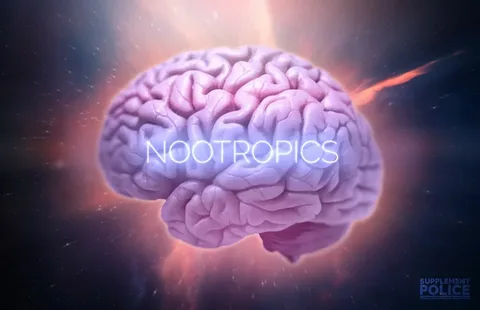In an increasingly complex and demanding world, the pursuit of optimal cognitive performance has led to growing interest in nootropics—substances believed to enhance brain function. Particularly intriguing is their potential impact on executive function, a set of cognitive processes crucial for managing tasks, making decisions, and achieving goals. This guide explores the role of nootropics in enhancing executive function, shedding light on the science behind these compounds, their benefits, and practical considerations for use.
Understanding Executive Function
What is Executive Function?
Executive function refers to a group of mental skills that enable individuals to plan, focus attention, remember instructions, and manage multiple tasks. It includes three core components:
- Working Memory: The ability to hold and manipulate information over short periods.
- Cognitive Flexibility: The capacity to adapt to new information or changing conditions.
- Inhibitory Control: The power to suppress impulsive responses and distractions.
These cognitive abilities are essential for problem-solving, reasoning, and goal-directed behavior, making them vital for daily life and professional success.
The Neural Basis of Executive Function
Executive function is primarily associated with the prefrontal cortex, the brain region responsible for higher-order cognitive processes. This area works in concert with other brain regions, including the parietal cortex and basal ganglia, to coordinate complex behaviors. Neurotransmitters like dopamine and norepinephrine play crucial roles in modulating these functions, influencing attention, motivation, and emotional regulation.
Nootropics: Enhancing Cognitive Performance
What Are Nootropics?
Nootropics, also known as “smart drugs” or cognitive enhancers, are substances that purportedly improve cognitive function. They encompass a wide range of compounds, including:
- Natural substances: Herbs, vitamins, and amino acids (e.g., Ginkgo biloba, Rhodiola rosea, L-theanine).
- Synthetic compounds: Prescription drugs (e.g., Modafinil, Adderall) and over-the-counter supplements (e.g., racetams, noopept).
Nootropics aim to enhance memory, creativity, motivation, and overall mental function, making them popular among students, professionals, and anyone looking to boost cognitive performance.
Mechanisms of Action
Nootropics work through various mechanisms, depending on the specific compound. Common pathways include:
- Neurotransmitter Modulation: Many nootropics influence neurotransmitter levels, enhancing communication between neurons. For example, racetams are thought to increase acetylcholine, a neurotransmitter associated with memory and learning.
- Neuroprotection: Some nootropics have antioxidant properties, protecting brain cells from oxidative stress and damage. This is particularly relevant for long-term cognitive health.
- Cerebral Blood Flow: Certain nootropics, like Ginkgo biloba, may improve blood flow to the brain, increasing oxygen and nutrient delivery, which supports cognitive function.
Nootropics and Executive Function
Enhancing Working Memory
Working memory is a key component of executive function, essential for reasoning and decision-making. Nootropics like Piracetam and Aniracetam are believed to enhance working memory by boosting acetylcholine levels and improving synaptic plasticity. Studies suggest that these compounds may enhance memory recall and information processing speed, beneficial for tasks requiring sustained mental effort.
Improving Cognitive Flexibility
Cognitive flexibility allows individuals to adapt to new information and changing circumstances. Nootropics like Modafinil have been shown to enhance this aspect of executive function, promoting flexible thinking and problem-solving abilities. This is particularly useful in dynamic environments where adaptability is key.
Supporting Inhibitory Control
Inhibitory control is crucial for resisting distractions and impulses, enabling focused and goal-directed behavior. Nootropics like L-theanine, found in green tea, can promote relaxation and reduce anxiety without causing drowsiness. This effect supports better concentration and inhibitory control, making it easier to stay on task.
Safety and Ethical Considerations
Potential Risks and Side Effects
While many nootropics are considered safe when used responsibly, they can have potential side effects. For instance, stimulant-based nootropics like Modafinil may cause insomnia, headaches, or anxiety. Natural nootropics may also interact with medications or have contraindications for certain medical conditions. It’s crucial to consult with a healthcare provider before starting any nootropic regimen.
Ethical Considerations
The use of nootropics, particularly prescription drugs like Modafinil or Adderall, raises ethical questions about fairness and cognitive enhancement. Concerns include the pressure to enhance performance, potential dependence, and the broader implications of widespread nootropic use in competitive environments. As the popularity of nootropics grows, these ethical considerations become increasingly relevant.
FAQs on Nootropics and Executive Function
What are nootropics?
Nootropics are substances that may enhance cognitive functions such as memory, creativity, and executive function. They include both natural and synthetic compounds.
How do nootropics enhance executive function?
Nootropics can enhance executive function by modulating neurotransmitters, protecting neurons, and improving blood flow to the brain, among other mechanisms.
Are nootropics safe to use?
While many nootropics are considered safe when used properly, they can have side effects and interactions with medications. Consulting with a healthcare professional is advisable.
Can nootropics help with focus and attention?
Yes, certain nootropics, like Modafinil and L-theanine, are known for improving focus and attention, which are key components of executive function.
Do nootropics have any long-term benefits?
Some nootropics may offer long-term benefits, particularly those with neuroprotective properties. However, more research is needed to understand the long-term effects fully.
Are there natural alternatives to synthetic nootropics?
Yes, there are several natural nootropics, such as Ginkgo biloba, Rhodiola rosea, and L-theanine, which may enhance cognitive function without the risks associated with synthetic compounds.
Can nootropics improve memory?
Nootropics like racetams are believed to enhance memory by increasing neurotransmitter levels and improving synaptic plasticity.
Is it ethical to use nootropics for cognitive enhancement?
The ethical considerations around nootropic use include concerns about fairness, pressure to enhance performance, and potential dependence. These issues are complex and context-dependent.
How do I choose the right nootropic for me?
Choosing the right nootropic depends on your specific needs and health conditions. It’s important to research the effects and potential risks of each nootropic and consult a healthcare provider.
Can nootropics replace healthy lifestyle habits?
Nootropics should not replace healthy lifestyle habits such as a balanced diet, regular exercise, and adequate sleep. These are foundational for cognitive health and well-being.
Conclusion
Nootropics offer a fascinating glimpse into the potential to enhance executive function and overall cognitive performance. While promising, their use requires careful consideration of safety, efficacy, and ethical implications. Whether seeking to boost memory, improve focus, or support mental flexibility, understanding the role of nootropics can help you make informed decisions about their use. As with any supplement, consulting with a healthcare professional is essential to ensure safe and effective use.
- Profhilo Treatment Near Forest Green, Surrey - May 31, 2025
- Vista Edge Vape Oil Leakage: How To Prevent And Fix It - May 31, 2025
- How To Recognize And Heal From The Damaging Effects Of Love Bombing - May 31, 2025


